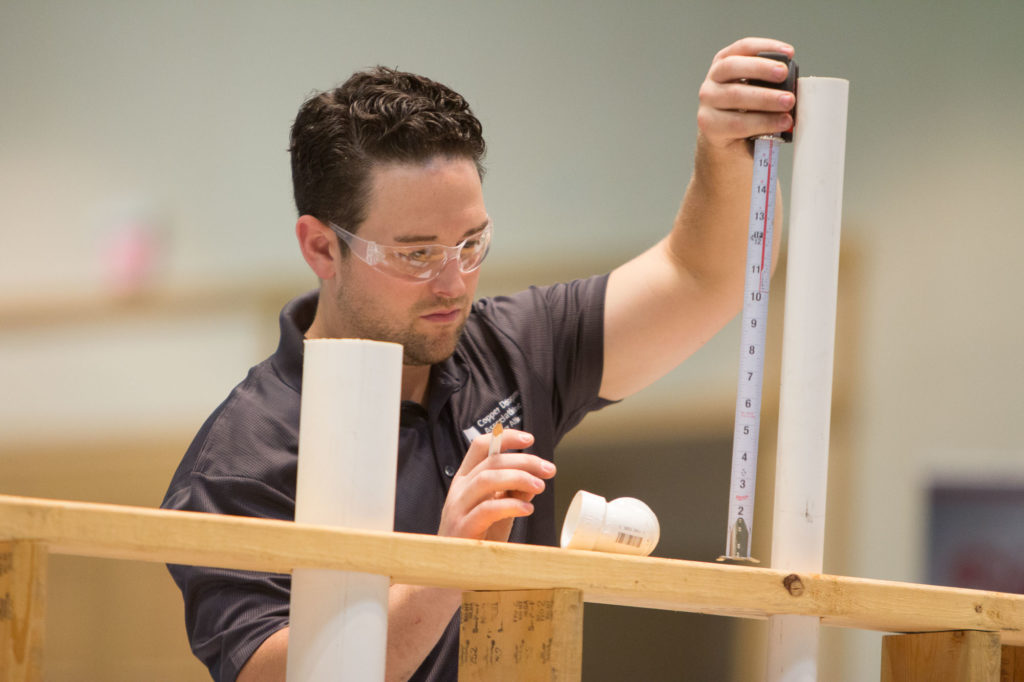What is Plumbing/ Heating/ Cooling/ HVACR?
What is plumbing?
Plumbing involves installing and repairing fixtures and appliances connected to a house or building’s water system. The system is intricately woven as a network of pipes throughout a house or building walls, and it’s the plumber who can help keep this network running smoothly. A plumber may be responsible for:
- Setting up clean, potable cold and hot tap water supply
- Managing sewage and septic systems
- Draining rainwater and surface water
- Handling water-driven heating and cooling systems, and gas lines.
Correct plumbing is critical for ensuring public health safety and access to clean water. Today, knowledge of water conservation is also important for plumbing professionals.
A day in the life of a plumber
- May work out of a house, school, hospital, or a large commercial building
- Must be knowledgeable about local building codes, how to read a blueprint, and be familiar with pipe and construction materials
- A typical day can range from fixing a broken pipe under a bathroom sink to calculating the correct pressure required to flush a toilet from the 50th floor of a building so it reaches the sewage system underground
It’s possible for plumbers to be employed full-time. However, depending on the place of employment, there’s also flexibility in the scheduling, as plumbers work different shifts as emergencies arise.
Education for plumbing
While college is not necessary to earn your plumbing license, the job requires a detailed amount of specialized training and knowledge. Both can be acquired through trade school, community college, or a learn-while-you-earn apprenticeship and classroom attendance. You can work towards becoming a manager or supervisor, and even own your own company. With a college degree, you can take your plumbing career even farther with opportunities in computer-aided design (CAD), building information modeling (BIM), and project management.
What is heating and cooling?
Regulating indoor environment of buildings and homes through temperature, moisture, and air circulation to a comfortable level is an important and growing industry, particular in the renewable-energy sector. There are multiple methods to heat a building or home, including by furnace, boilers, heat pumps, gas-fired space heaters, solar; and to cool down a building, through air conditioning, refrigeration, free-cooling, and others. That temperature is balanced the right amount of moisture and air circulation to provide a comfortable indoor environment.
What is HVACR?
Those who work in heating and cooling also work in ventilation. Together, the term is known as HVACR, or Heating, Ventilation, Air Conditioning, and Refrigeration. These systems control temperature and air quality in homes and buildings. These professionals install, repair, or upgrade these systems. Like plumbing, HVACR experts are often called out for emergency repair when the one of these systems breaks down.
Through the years, advances in energy efficiency and technology have created far more opportunities in the HVACR industry, considering the difficulty to find qualified people who can maintain even a basic system.
Education for HVACR
HVACR professionals also do not need a four-year college degree, but do require technical training and apprenticeship work to become licensed. They’ll learn thermodynamics, electrical systems, mechanical skills, and more. An HVAC professional can also specialize in an area, such as gas heating, heat pumps, air conditioning, and so forth.
